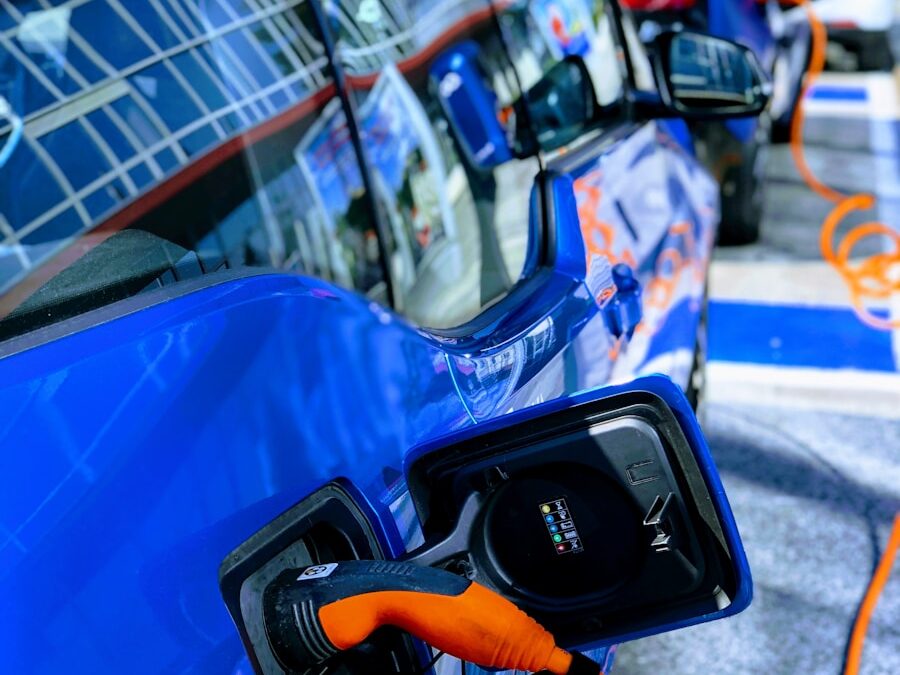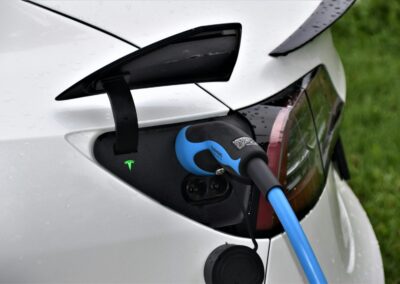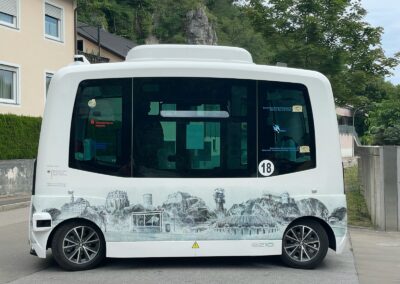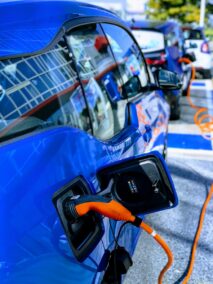Transforming Urban Mobility through Electric Vehicles
The environmental benefits of integrating electric vehicles (EVs) into public transportation and fleet operations are significant, especially in rapidly urbanizing regions like Saudi Arabia and the UAE. By replacing traditional internal combustion engine (ICE) vehicles with electric alternatives, cities such as Riyadh and Dubai can drastically reduce greenhouse gas emissions and improve air quality. EVs produce zero tailpipe emissions, which means fewer pollutants like nitrogen oxides (NOx) and particulate matter (PM) are released into the atmosphere. This reduction is crucial for combating urban air pollution and mitigating the health risks associated with poor air quality.
In Riyadh and Dubai, where traffic congestion and high vehicle emissions are ongoing challenges, the adoption of EVs in public transportation can lead to substantial environmental improvements. Electric buses and taxis, for instance, can significantly lower the carbon footprint of daily commuting. Additionally, these cities’ commitments to sustainability and innovation provide an ideal backdrop for the widespread implementation of electric public transportation. Government incentives and policies that support the transition to electric fleets can further enhance these environmental benefits, making clean transportation accessible and efficient.
Moreover, the reduction in noise pollution is another notable advantage of electric vehicles. EVs operate much more quietly than their ICE counterparts, which can contribute to a more pleasant and less stressful urban environment. This is particularly beneficial in densely populated areas where noise pollution is a major concern. By promoting the use of electric vehicles in public transportation, cities can create healthier and more livable urban spaces, aligning with their broader goals of sustainable development.
Enhancing Fleet Operations with Electric Vehicles
Electric vehicles offer numerous benefits for fleet operations, including reduced operational costs and improved environmental performance. Fleets of delivery vans, corporate cars, and municipal service vehicles can all be converted to electric power, resulting in significant cost savings over time. EVs have lower maintenance costs compared to ICE vehicles due to fewer moving parts and less frequent need for repairs. This efficiency translates to lower total cost of ownership, making EVs a financially viable option for fleet operators.
In addition to cost savings, the environmental impact of fleet operations can be substantially reduced through electrification. Delivery services and logistics companies that operate large fleets can significantly decrease their carbon emissions by switching to electric vehicles. This transition not only supports environmental sustainability but also enhances corporate social responsibility (CSR) profiles. Companies that prioritize sustainable practices can improve their brand image and appeal to environmentally conscious consumers.
The use of advanced technologies such as Artificial Intelligence (AI) and Blockchain can further optimize fleet operations. AI can enhance route planning and fleet management, ensuring that EVs are used efficiently and effectively. By analyzing traffic patterns and predicting maintenance needs, AI can help minimize downtime and maximize the operational efficiency of electric fleets. Blockchain technology can provide secure and transparent tracking of energy usage and maintenance records, ensuring accountability and reliability in fleet management. In the technologically advanced cities of Riyadh and Dubai, leveraging these technologies can significantly enhance the performance and sustainability of fleet operations.
Executive Coaching and Change Management for Sustainable Transition
The successful transition to electric vehicles in public transportation and fleet operations requires effective change management and strong leadership. Business leaders and government officials in Saudi Arabia and the UAE must champion these initiatives, fostering a culture of innovation and sustainability. Executive coaching services can equip leaders with the skills needed to manage this complex transformation, focusing on strategic planning, stakeholder engagement, and effective communication.
Change management strategies are crucial for aligning the efforts of various stakeholders, including policymakers, transportation authorities, and fleet operators. Clear communication, continuous engagement, and adaptive planning are essential for overcoming resistance and ensuring a smooth transition to electric vehicles. In the fast-paced business environments of Riyadh and Dubai, effective change management can significantly enhance the success of EV adoption initiatives.
Management consulting firms can provide valuable support in the planning and execution of electrification strategies. Consultants can conduct feasibility studies, develop regulatory frameworks, and design efficient processes for implementation. This professional support ensures that the initiatives are comprehensive and aligned with broader national goals, promoting interoperability and enhancing the user experience.
#ElectricVehicles #PublicTransportation #FleetOperations #EnvironmentalBenefits #SaudiArabia #UAE #Riyadh #Dubai #AI #Blockchain #BusinessSuccess #ManagementConsulting #ExecutiveCoaching























